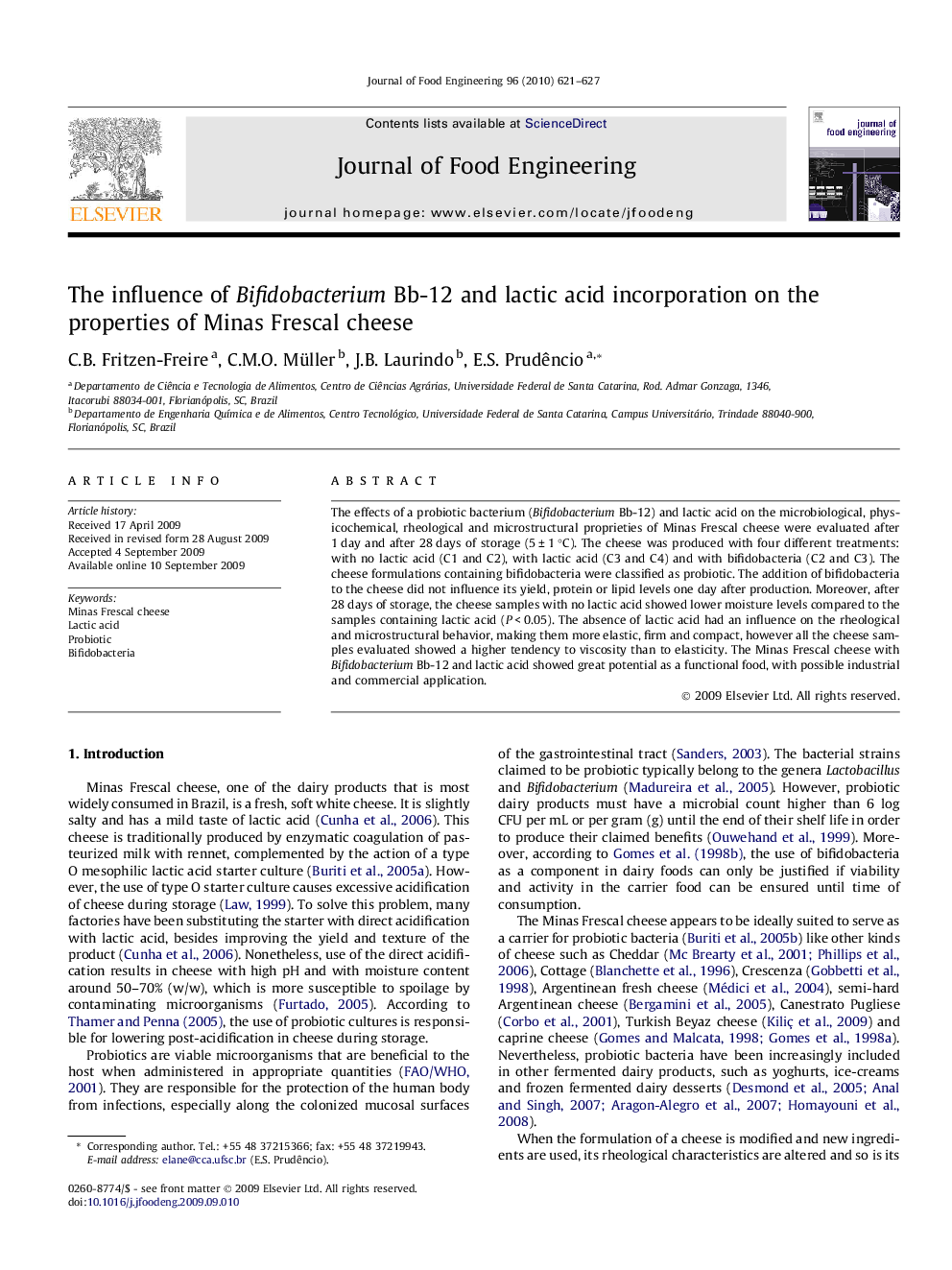| Article ID | Journal | Published Year | Pages | File Type |
|---|---|---|---|---|
| 224249 | Journal of Food Engineering | 2010 | 7 Pages |
The effects of a probiotic bacterium (Bifidobacterium Bb-12) and lactic acid on the microbiological, physicochemical, rheological and microstructural proprieties of Minas Frescal cheese were evaluated after 1 day and after 28 days of storage (5 ± 1 °C). The cheese was produced with four different treatments: with no lactic acid (C1 and C2), with lactic acid (C3 and C4) and with bifidobacteria (C2 and C3). The cheese formulations containing bifidobacteria were classified as probiotic. The addition of bifidobacteria to the cheese did not influence its yield, protein or lipid levels one day after production. Moreover, after 28 days of storage, the cheese samples with no lactic acid showed lower moisture levels compared to the samples containing lactic acid (P < 0.05). The absence of lactic acid had an influence on the rheological and microstructural behavior, making them more elastic, firm and compact, however all the cheese samples evaluated showed a higher tendency to viscosity than to elasticity. The Minas Frescal cheese with Bifidobacterium Bb-12 and lactic acid showed great potential as a functional food, with possible industrial and commercial application.
